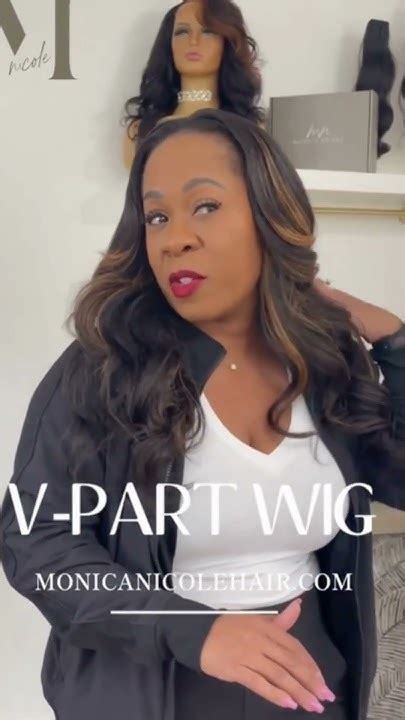What are Wigs?

Wigs, also known as hairpieces, are full head coverings made from synthetic or human hair. They provide a quick and convenient way to change one’s hairstyle or add volume to thinning hair.
Types of Wigs
The vast world of wigs offers a wide array of options to suit every need and style, including:
1. Lace Front Wigs (3 Types)
- Full Lace Front Wigs: Hand-tied knots create a natural hairline from temple to temple, allowing for versatile styling.
- Partial Lace Front Wigs: Lace extends a few inches from the hairline, providing a natural look at the front while offering more durability.
- 360 Lace Front Wigs: Lace covers the entire hairline, providing a seamless transition from the scalp to the hair.
2. Non-Lace Wigs (7 Types)
- Capless Wigs: Machine-wefted hair is attached to an open cap, providing excellent breathability.
- Mono Top Wigs: A monofilament base creates a realistic scalp effect, offering a more natural appearance.
- Hand-Tied Wigs: Hair is hand-tied to a fine mesh or lace base, resulting in a comfortable and virtually undetectable wig.
- Machine-Made Wigs: Durable and cost-effective, machine-made wigs offer a wide selection of styles.
- Open-Cap Wigs: Hair is attached to an open cap with adjustable straps, providing a secure fit.
- Snap-On Wigs: Clips or snaps allow for easy and fast attachment or removal.
- Skin Wigs: A thin polyurethane base mimics the scalp, creating the illusion of natural hair growth.
3. Synthetic Wigs (7 Types)
- Kanekalon Wigs: Economical and heat-resistant, Kanekalon fibers offer a glossy finish.
- Dynel Wigs: Highly durable and lightweight, Dynel fibers provide a matte finish.
- Modacrylic Wigs: Soft and hypoallergenic, Modacrylic fibers resemble human hair.
- Toyokalon Wigs: Advanced technology creates fibers that mimic the density and texture of human hair.
- Ultra-Thin Skin Wigs: Innovative monofilament fibers create an ultra-fine and breathable base.
- Heat-Resistant Wigs: Synthetics designed to withstand styling heat up to 350 degrees Fahrenheit.
- Premium Synthetic Wigs: High-quality fibers that provide natural-looking volume and shine.
4. Human Hair Wigs (5 Types)
- Remy Hair Wigs: Hair cuticles are aligned in the same direction, ensuring a tangle-free and smooth texture.
- Non-Remy Hair Wigs: Hair cuticles are not aligned, resulting in a less expensive and more prone to tangling texture.
- Virgin Hair Wigs: Unprocessed and chemically untreated hair provides the most natural appearance.
- Dyed Hair Wigs: Virgin or non-Remy hair has been colored to achieve a desired shade.
- Bleached Hair Wigs: Virgin or non-Remy hair has been lightened to create blonde or platinum hues.
Benefits of Wigs
- Instant Hair Transformations: Change hairstyle or hair color in minutes.
- Add Volume and Thickness: Enhance thinning hair or create fuller, more voluminous styles.
- Protect Natural Hair from Damage: Shield hair from heat styling, coloring, and chemical treatments.
- Medical Hair Loss Solutions: Provide coverage for those experiencing hair loss due to medical conditions.
- Cost-Effective Hairstyling: Experiment with different hairstyles without committing to a permanent change or expensive salon visits.
Tips and Tricks
- Choose the Right Wig Type: Consider your lifestyle, desired style, and budget.
- Measure Your Head: Ensure a secure and comfortable fit.
- Try on Different Styles: Experiment with various lengths, colors, and textures to find what suits you best.
- Care for Your Wig Properly: Follow the manufacturer’s instructions for washing, drying, and styling.
- Consult a Wig Specialist: Seek professional guidance for personalized advice and expert styling tips.
Conclusion
Wigs empower individuals to express their style, enhance their appearance, and embrace their individuality. With such a diverse range of types available, there’s a perfect wig to suit every need and desire. Embrace the world of wigs and unlock endless possibilities for hair transformations!
Tables
Table 1: Lace Front Wigs
| Feature | Full Lace | Partial Lace | 360 Lace |
|---|---|---|---|
| Hairline | Temple to temple | Temple to crown | Entire hairline |
| Lace Coverage | 100% | 2-3 inches | 100% |
| Versatility | Most versatile | Less versatile | Most versatile |
| Cost | Most expensive | Affordable | Less expensive than Full Lace |
Table 2: Non-Lace Wigs
| Feature | Capless | Mono Top | Hand-Tied | Machine-Made | Open-Cap | Snap-On | Skin |
|---|---|---|---|---|---|---|---|
| Base | Open cap | Monofilament | Fine mesh/lace | Machine-wefted | Adjustable straps | Clips/snaps | Polyurethane |
| Breathability | Excellent | Good | Very good | Good | Very good | Excellent | Poor |
| Comfort | Good | Very good | Excellent | Good | Good | Excellent | Good |
| Cost | Affordable | Moderate | Expensive | Affordable | Affordable | Affordable | Expensive |
Table 3: Synthetic Wigs
| Feature | Kanekalon | Dynel | Modacrylic | Toyokalon | Ultra-Thin Skin | Heat-Resistant | Premium Synthetic |
|---|---|---|---|---|---|---|---|
| Fiber Type | Economical | Durable | Soft | Advanced | Ultra-fine | Styling heat-resistant | High-quality |
| Finish | Glossy | Matte | Resembles human hair | Mimics human hair texture | Ultra-fine | Resembles human hair | Natural-looking |
| Cost | Affordable | Affordable | Affordable | Moderate | Expensive | Affordable | Moderate |
Table 4: Human Hair Wigs
| Feature | Remy Hair | Non-Remy Hair | Virgin Hair | Dyed Hair | Bleached Hair |
|---|---|---|---|---|---|
| Quality | Aligned cuticles | Non-aligned cuticles | Unprocessed | Colored | Lightened |
| Texture | Smooth, tangle-free | Prone to tangling | Natural | Customizable color | Customizable color |
| Cost | Expensive | Affordable | Most expensive | Moderate | Expensive |
